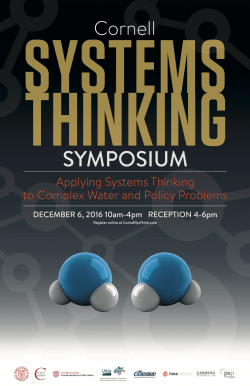 The 2016 Cornell Systems Thinking Symposium focuses on the application of the fourth wave of systems thinking to a diverse set of critical problems, with special attention devoted to complex problems in both public policy and water.
The 2016 Cornell Systems Thinking Symposium focuses on the application of the fourth wave of systems thinking to a diverse set of critical problems, with special attention devoted to complex problems in both public policy and water.
The fourth wave of systems thinking identifies four simple rules that underlie the diverse set of methodologies, tools, theories, and practices that constitute the field of systems thinking. These four rules—making distinctions and recognizing systems, relationships, and perspectives (DSRP)—can be easily taught and applied in any domain, whether to analyze and solve problems of daily living or high-stakes, complex problems involving competing interests and multiple actors.
Speakers
The symposium’s unique format features impactful 10-minute TED-style talks and award-winning multi-media content. The symposium combines academics with seasoned practitioners working on complex problems to discuss their experiences applying the 4th wave of systems thinking (DSRP). After a keynote presentation by Cornell faculty and systems theorist Derek Cabrera, top graduate fellows from the Cornell Institute of Public Affairs and the recipients of the 2016 USDA ThinkWater Fellowship will give talks on how the application of systems thinking/DSRP has influenced their ongoing water and policy efforts at the masters, doctoral, postdoctoral, and faculty level of research. Throughout the day, a variety of expert practitioners in their field—from the US Military Academy at West Point and Department of State to Coordinator of Arizona Project Wet (youth environmental education programming) to Extension-based outreach coordinators to leaders in water research and policy at the state and national level—will share their insights from applying systems thinking in their work.
(Click on a speaker to reveal their bio)
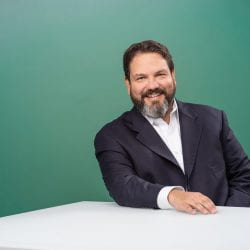
Derek Cabrera (PhD, Cornell) is an internationally known systems scientist who in 2021 was inducted as a Member of the International Academy for Systems and Cybernetic Sciences (IASCYS) for outstanding contributions to the field. Derek serves on the faculty of Cornell University, is Faculty Director for the Graduate Certification Program in Systems Thinking, Modeling, and Leadership (STML) and is senior scientist at Cabrera Research Lab. He serves on the United States Military Academy at West Point’s Systems Engineering Advisory Board. He has given two TED Talks, holds two US patents, written and produced a rap song, a children’s book on cognition, and numerous book chapters and peer-reviewed journal articles. His research has been profiled in peer-reviewed journals, trade magazines, and popular publications. His work in public schools was documented in the full-length documentary film, RE:Thinking. He was Research Fellow at the Santa Fe Institute (SFI) for the Study of Complex Systems and National Science Foundation IGERT Fellow in Nonlinear Systems in the Department of Theoretical and Applied Mechanics at Cornell University. In 2018, he received the National Science Foundation Small Business Innovation Research (SBIR) for his work in cognitive mapping. He is author of ten books including, The Origin of Ideas: Empirical Studies in Cognitive Complexity (forthcoming 2022), Systems Thinking Made Simple (winner of the 2017 AECT outstanding book award), Thinking at Every Desk, and Flock Not Clock. He is credited with discovering universal organizing rules of systems and systems thinking (DSRP Theory) and organizations (VMCL Theory). He was invited by LinkedIn Learning and eCornell to deliver online courses in Systems Thinking and Leadership. He was Co-Founder and Chief Science Officer of Plectica (since sold to Frameable) where he invented several software applications including Plectica systems mapping and virtual whiteboard. Cabrera is co-editor of the Routledge Handbook of Systems Thinking (forthcoming 2022) and on the editorial board of the international, peer-reviewed journal, Systems. He is the Editor in Chief of the peer-reviewed Journal of Systems Thinking. As a National Science Foundation postdoctoral fellow, he developed new techniques to model systems approaches in the evaluation of Science, Technology, Engineering, and Mathematics (STEM). Cabrera was awarded the Association of American Colleges and Universities’ K. Patricia Cross Future Educational Leaders Award. His contributions to the field of systems thinking have been integrated into NSF, NIH, and USDA-NIFA programs, K-12, higher education, NGOs, federal agencies, corporations, and business schools. His systems models are used by many of Silicon Valley’s most innovative companies. His books are used as introductory text for undergraduate and graduate students in numerous colleges and universities including Cornell University, the US Military Academy at West Point, and the US Army War College. Cabrera has developed a suite of systems thinking tools for use in academia, business, and beyond including the first validated personal inventory of systems thinking. Prior to becoming a scientist, Cabrera worked for fifteen years around the world as a mountain guide and experiential educator for Outward Bound and other organizations and has climbed many of the world’s highest mountains. He also worked extensively with the Conservation Corps and Restorative Justice movements. He holds a PhD from Cornell University and lives in Ithaca, NY, with his wife, Laura Cabrera, three children, and two dogs.
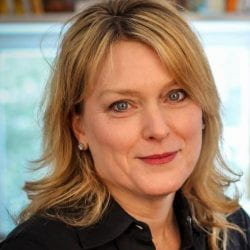
Laura Cabrera (B.S., M.P.A, & PhD, Cornell) currently teaches Systems Thinking and Modeling and Systems Leadership at Cornell University at the Institute for Policy Affairs. She is also Program Director for Cornell’s Graduate Certification Program in Systems Thinking, Modeling, and Leadership (STML). Cabrera serves as faculty for the SC Johnson College of Business, where she delivers Executive Education Programs to executive teams in both systems thinking and systems leadership.She is co-founder, and chief research officer at Cabrera Research Lab. She was Co-Founder and Chief Research Officer of Plectica (now Frameable). Over the past decade, Laura has applied her expertise in research methods and translational research to increase public understanding, practical application, and dissemination of sophisticated systems science and systems thinking models. She was also invited by eCornell to deliver the online certificate course in Systems Thinking and Leadership, as well as the eCornell courses that are part of the Executive MPA Program. She was the acting Executive Director of ThinkWater, a USDA-funded initiative designed to implement systems thinking nationwide in water-based research, extension, and education. In 2018, she received the National Science Foundation Small Business Innovation Research (SBIR) for her work in cognitive mapping. She has more than twenty-five years of research and teaching experience at Cornell University, which includes: teaching coursework on families and social policy in Cornell’s Department of Human Development; Senior Research Associate at the Center for Translational Research; Principal Evaluator for the Eat Smart New York Program for the NYS Food Stamp and Nutrition Education Program; Project Director for the National Science Foundation Science, Technology, Engineering and Mathematics (STEM) Systems Evaluation Capacity Grant to evaluate STEM Education nationwide and to develop a systems thinking approach to STEM education; and Co-Principal Investigator for Cornell’s Parenting in Context Initiative. Prior to Cornell, Cabrera conducted research at the National Academy of Sciences Institute of Medicine, the U.S. Department of Health and Human Services, and the U.S. Department of Justice. She has authored five books including Systems Thinking Made Simple: New Hope for Solving Wicked Problems and Thinking at Every Desk: Four Simple Skills to Transform Your Classroom (Norton), Flock Not Clock: Design, Align, and Lead to Achieve Your Vision, and is currently co-editor of the Routledge Handbook of Systems Thinking. Her work in public schools was documented in the full-length documentary film, RE:Thinking. Dr. Cabrera holds a PhD in Policy Analysis and Management and a Master’s in Public Administration, and a bachelor’s degree, all from Cornell University. She is a member of the United States Military Academy at West Point’s Systems Engineering Advisory Board. She specializes in translating cutting-edge research from the learning sciences for broad application–whether in corporations, schools, nonprofits, government agencies, or for parents interested in the psychosocial development of their children. She lives in Ithaca, NY, with her husband, Derek Cabrera, three children, and two dogs.
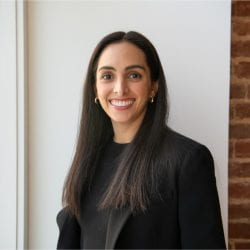
Juris Doctor Graduate from American University Washington College of Law with experience in criminal and capital defense, strategic human rights litigation, and international and comparative legal research.
Paulina (she/her/hers) will advocate on behalf of incarcerated people in Georgia who were sentenced to life in prison as children through direct representation in parole proceedings, education, and policy reform.
In Georgia, more than 600 people are serving life sentences for crimes they committed as children—some as young as 13 years old. 78% of these individuals are Black. Each is supposed to receive a meaningful opportunity for parole, but they do not. Parole applicants in Georgia have no legal right to appear before the State Board of Pardons and Paroles. They have no right to counsel, present evidence, call expert witnesses, or even access their parole files.
Having a parole lawyer in Georgia is critical. A lawyer is able to submit a written advocacy packet to the Board, which tells the story of who that child has become in the past decades. Without this advocacy, people serving life sentences since childhood will have little to no opportunity to obtain release, as the Board will continue to make decisions based primarily on the Department of Corrections paperwork, which is often incomplete and deficient. Such paperwork certainly does not show who these children were, who they have become, and the community support they would have if paroled.
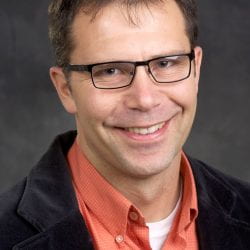
- Experience and Interests Teaching Executive Education, UW-Stevens Point, MBA (2021-present)
- Global Affiliate Scholar/Instructor, UW-Stevens Point, Educational Sustainability Program (2018-present)
- Instructor, Lakeland College (2017)
- Instructor, UW-Stevens Point, College of Natural Resources (2012-2015)
- Research Interests Sense of Place Environmental Behaviors Civic Engagement Professional Co-Owner, Tapped Maple Syrup (2017-present)
- Maple Syrup Project Manager, UW-Madison Division of Extension (2021-present)
- Leadership Specialist, UW-Madison Division of Extension (2019-2021)
- National Project Manager, ThinkWater, University of Wisconsin-Extension (2015-2019)
- Interim Director, Wisconsin Center for Environmental Education, UW-Stevens Point (2012-2015)
- K-12 Forestry Program Director, UW-Stevens Point (2007-2012)
- Wisconsin School Forest Coordinator, UW-Stevens Point (2003-2007)

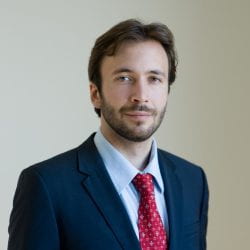
Dr. Erwin Knippenberg is a Young Professional at the World Bank, in the South Asia Poverty practice. He previously worked as a consultant, using machine learning and data science to inform decision-making in public health and climate resilience. Erwin has a in PhD in Applied Economics from Cornell University, where he wrote his dissertation on resilience and food security in the context of climate change. Prior to Cornell Erwin was an Overseas Development Institute Fellow at the Liberian Ministry of Finance. Erwin has a MSC in Economics for Development from Oxford (’12) and a joint BS/MA from Georgetown University’s School of Foreign Service (’11).
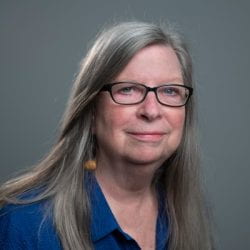
Hoard is President of the award-winning film company PhotoSynthesis Productions, based in downtown Ithaca, New York. Her work is focused on education and social justice, and she has won more than 150 national and international film and video awards.
Hoard’s documentary They Call It Myanmar screened worldwide and was called “a thing of beauty…one of the top 12 documentaries of 2012” by Roger Ebert. Her narrative film Civil Warriors was recently awarded Best Feature at the Long Beach INDIE Film Festival, and her new documentary about Cambodia entitled Angkor Awakens opened in theaters nationwide in 2017. Hoard has produced numerous short films and animations for the ThinkWater national education program. Her new documentary RE:THINKING explores the power of systems thinking in education.
A member of the President's Council of Cornell Women, Hoard graduated from the University of California, Berkeley, and has a master’s degree from Cornell.
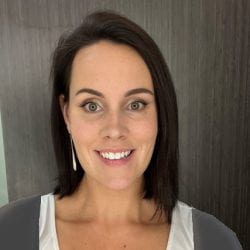
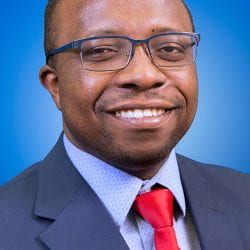
Dr. Godfred Boateng is an Assistant Professor at The University of Texas at Arlington. Prior to joining UTA, Dr. Boateng worked as a Postdoctoral Research Fellow at Harvard T.H. Chan School of Public Health (2018-2019), Northwestern University (2016-2018), and Cornell University (2016). He received his Ph.D. in Sociology in 2016 from Western University, Canada.
Dr. Boateng is an expert in the design and application of culturally relevant scalable methodologies in understanding the multi-dimensional factors and processes that shape health and health equity across spatial scales (household, community, institutional, national) and how these factors can be addressed in a sustained manner. His contribution to science can be broadly divided into three research themes.
The first theme focuses on resource insecurity and health assessments in low-and middle-income countries. Here, he examines the interconnections that exist between housing, food, water, and energy insecurity and associated health implications; particularly, those that produce health inequity among women, infants, and children.
The second theme focuses on the development and measurement of health indicators. The measurement of behaviors, attitudes, and hypothetical scenarios has facilitated his assessment and monitoring of resource insecurity resulting in the development of several scales (housing, water, and energy insecurity), the estimation of prevalence, and identification of hotspots among vulnerable populations.
The third theme focuses on the socio-ecological determinants of cardiometabolic diseases among aging adults. In this stream, he focuses on how changes in the physical and social environment influence chronic diseases and how these changes culminate in health inequity.
Beyond these themes, he still writes on the challenges facing caregivers in professional work spaces which was the theme of his doctoral dissertation. He approaches his research from a multidisciplinary perspective drawing on methods and theories from nutrition, social epidemiology, population health, sociology, demography, and international development. Dr. Boateng has published in high impact factor global health journals including BMJ Global Health, Social Science and Medicine, Frontiers in Public Health, Global Public Health, Maternal and Child Nutrition, and PloS ONE.
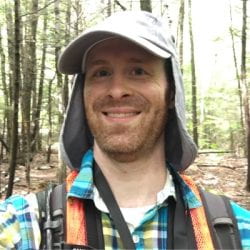
Alex is an environmental scientist with Eastern Research Group Inc. He has previously worked as a summer forestry technician with the Society for the Protection of New Hampshire Forests and as a stewardship specialist with Piscataquog Land Conservancy. Alex holds a bachelor’s degree in conservation biology from SUNY College of Environmental Science and Forestry, a dual master’s degree in natural resources and forestry from North Carolina State University and the University of Helsinki, and a doctorate in environmental science from the University of Massachusetts Boston. His hobbies include many things outdoors (particularly hiking and backpacking), mushrooming, traditional fiddling, and Aikido. Alex currently lives with his wife, daughter, and son in Manchester.
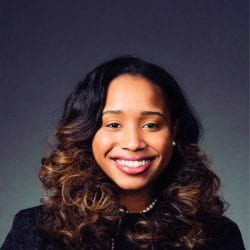
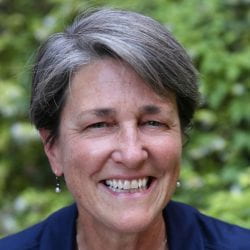
My Research Interests:
- STEM literacy
- K-12 education
- systems thinking through DSRP (Cabrera, 2015)
- project-based learning
- student-directed learning–real-world and relevant application using different facets of water resources and
- stewardship as integrating concepts
Degrees:
- MS Geosciences from the University of Arizona
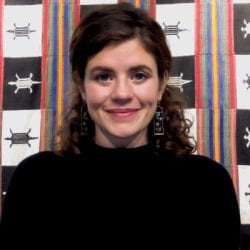
PhD (ABD) and public health nutrition professional (Registered Dietitian) with experience living and working in Morocco, Democratic Republic of Congo, Nigeria, Uganda, Kenya, Ghana, and Colombia. Remote project management in Iraq, Pakistan, Iran, Lebanon, Mexico, Tanzania, Tajikistan, Nepal, India, Bangladesh, Guatemala, and Haiti. Proficient in Arabic. Previously Senior Project Manager providing significant technical support for the household water insecurity scale development study (HWISE/WISE). Practiced in research study design and implementation (e.g., study instrument design, management and oversight, and sampling), IRB proposal development, grant writing/proposal development. Skilled in qualitative and quantitative data collection, management and analyses, manuscript/abstract/report preparation, household sampling and survey methods (including integration of digital data collection tools), fieldwork supervision, management, and training (including preparation of training materials), and project/program monitoring and evaluation.
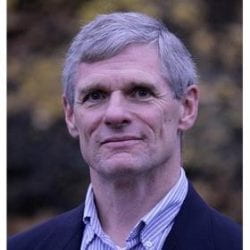
Greg Busby was instrumental in the foundation of and has led the Business Analysis practice at Cornell University for nearly 10 years. Greg has over 30 years of IT and business experience. He has performed business analysis of one type or another for nearly 20 of those years in roles as varied as Product Manager, Solution Owner, Senior Consultant and now Lead Business Analyst in industries including logistics, healthcare and higher education. Greg’s passion is helping people find elegant, cost-effective solutions to common and nagging problems, allowing people and businesses to address those issues and function more effectively.
Greg is a CBAP, was a Practitioner Reviewer of BABOK v2.0, has published articles online and was a contributor to Business Analysis for Dummies.
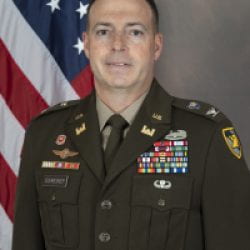
COL James Schreiner is an Academy Professor in the United States Military Academy (USMA), and Associate Professor in the Department of Systems Engineering (DSE) who currently serves as the Director of the Engineering Management Program. He commissioned through ROTC in 1995 into the U.S. Army Corps of Engineers. COL James H. Schreiner holds a B.S. in Mechanical Engineering from Marquette University, Milwaukee WI, a M.E. in Engineering Management from the University of Colorado, Boulder, a Ph.D. in Systems and Entrepreneurial Engineering from the University of Illinois, Urbana-Champaign, and the U.S. Army War College with a Masters in Strategic Studies. He is a registered PMP since 2004, a CPEM since 2017, and is an active Fulbright Specialist.
COL Schreiner previously served as Director of the Operations Research Center and as Director of the Systems and Decision Sciences Program in the Department of Systems Engineering. He has served as the Chair of the West Point’s Academy Research Council and is currently serving as the Deputy Chair for the Academic Freedom Committee and co-chair of the Faculty Development Committee. He has been the Head Officer Representative to the Army Softball Team since 2016. COL Schreiner is experienced and published in systems thinking, engineering management, and systems engineering disciplines to include work in the fields of water resources, cognitive engineering, engineering leadership, and decision analysis. He serves as Past President for the American Society for Engineering Management (ASEM) and current director of ASEM’s Membership and Mentorship Committee, is an assistant Officer in Charge of the Society of American Military Engineers (SAME) as well as an advisor for the NY City Post of SAME, and is co-editor of the SISE Industrial and Systems Engineering Review Journal.
His duty assignments include Platoon Leader, Company XO and BN S-4 duties with the 70th Engineer BN at Fort Riley, KS, Assistant Brigade Engineer for the 2nd Engineer BN at Camp Casey Korea, BN Assistant S-3 and Company Commander in the 4th EN BN at Fort Carson, CO, Strategic Construction Planner for CFC-A CJ7 Directorate in Kabul Afghanistan, Brigade Plans Officer and BN S3 and XO for 1st BCT, 82nd ABN at Fort Bragg, NC, USACE Deputy District Commander in Chicago IL, and Strategic Plans Officer for HQ USACE in Washington, DC. His service over 26 years includes over 36 months deployed in support of GWOT in Iraq and Afghanistan and 12 months in Korea.
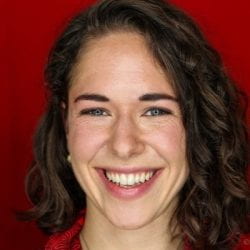
I am an experienced systems transformation professional and team lead, with experience developing teams and individuals and driving organizational design, strategies, and communications efforts. I have a unique mix of corporate in-house, consulting, start-up, research, and policy experience. I'm passionate about using systems-based approaches to solve complex, cross-functional problems.
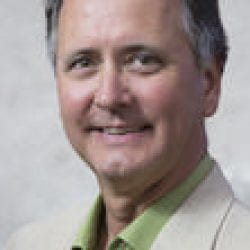
Doug Parker is the Director of the California Institute for Water Resources, UC Agriculture and Natural Resources. He coordinates water-related research, extension, and education efforts across the 10 UC campuses, the UC ANR system, and other academic institutions within California.
Prior to joining the University of California, Doug worked on water quality issues related to the Chesapeake Bay as a Professor and Extension Specialist in the Department of Agricultural and Resource Economics at the University of Maryland. He has also worked on issues related to California water as a Cooperative Extension Economist at UC Berkeley. Doug obtained his Ph.D. in Agricultural and Resource Economics at UC Berkeley and Bachelor’s Degrees in Economics and Environmental Studies at UC Santa Barbara.
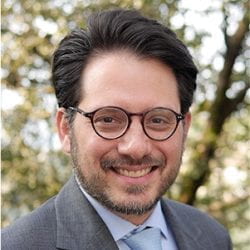
Systems and design approaches applied to diplomacy, foreign policy, and positive social impact.
Recordings of Presentations
Opening Remarks by Dr. Laura Cabrera
Dr. Derek Cabrera
Dr. Laura Cabrera
Dr. Paulina Lucio Maymon
Dr. Jermey Solin
Dr. Daniel Weller
Dr. Erwin Knippenberg
Deborah Hoard
Madeleine Rochelle
Dr. Godfred Boateng
Alexander Metzger
Courtney Miller
Kerry Schwartz
Dr. Shalean Collins
Greg Busby
COL James Schreiner
Jessica Sokolow
Dr. Doug Parker
Kapil Gupta
